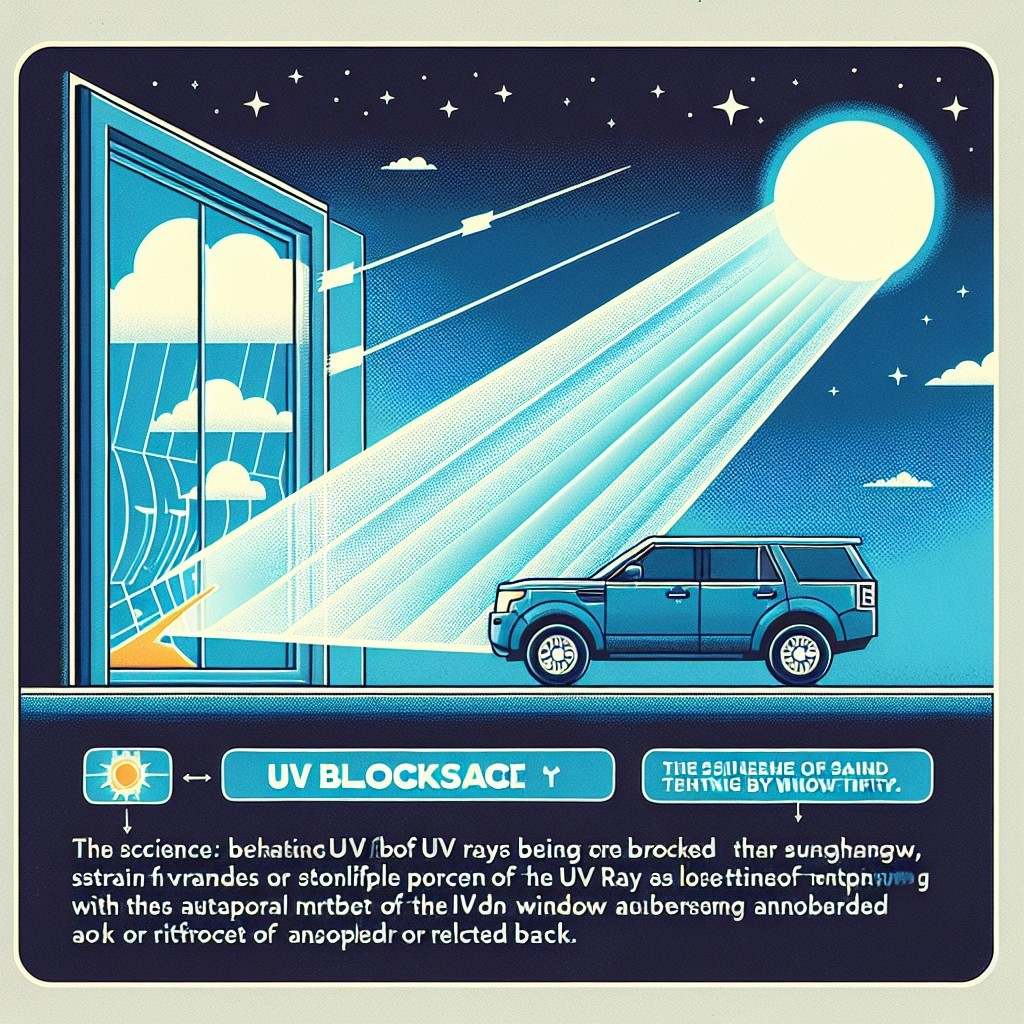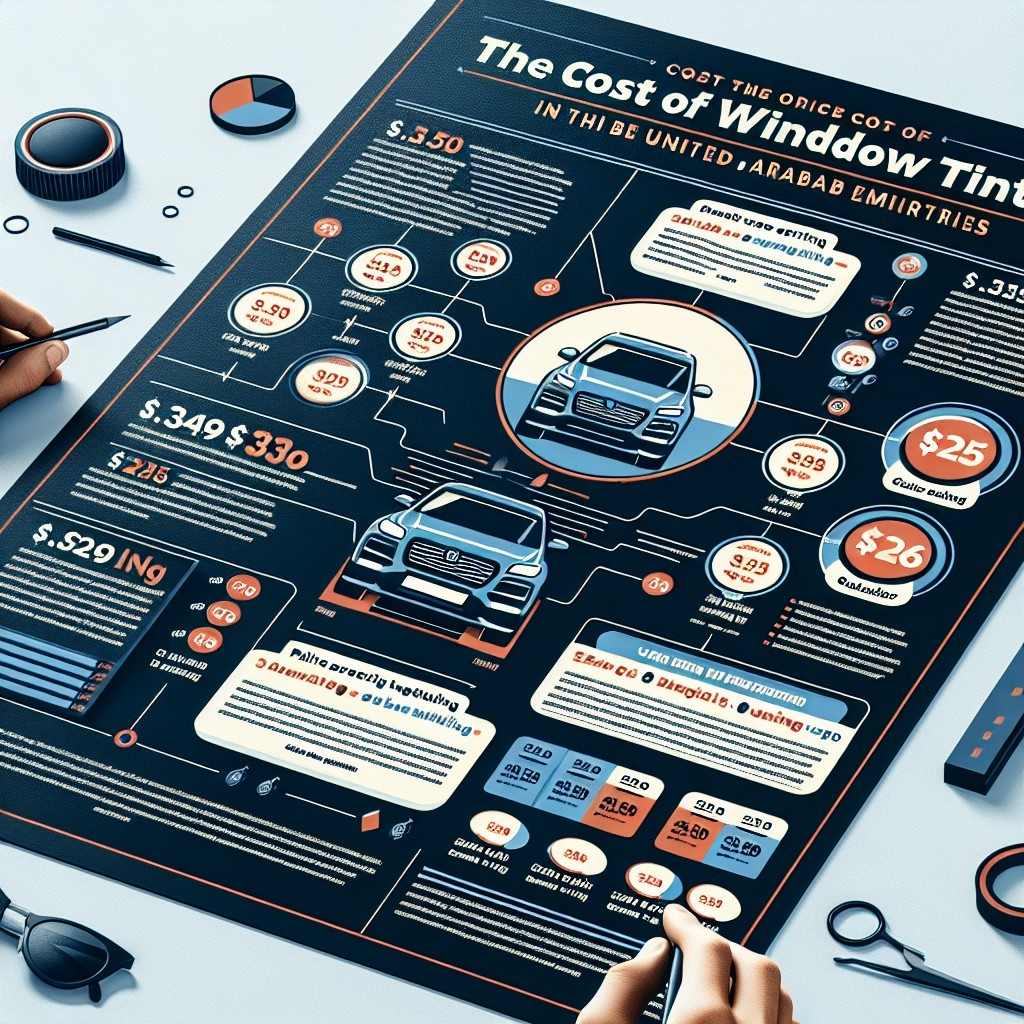As summer approaches and the sun’s rays become more potent, the question arises: does window tinting truly block harmful UV rays? With increasing awareness about skin cancer and the damaging effects of ultraviolet (UV) radiation, understanding the science behind window tinting is more important than ever. In this article, we’ll delve into the intricacies of window tinting, its effectiveness against UV rays, and how different types of tints can impact your health and comfort.
Understanding UV Rays
UV radiation is divided into three categories: UVA, UVB, and UVC. UVA rays penetrate the skin more deeply and are primarily responsible for aging and long-term skin damage, while UVB rays are associated with sunburn and have a more immediate effect. UVC rays are absorbed by the Earth’s atmosphere and do not reach the surface.
Both UVA and UVB rays can cause skin cancer, making it crucial to find effective ways to shield ourselves from their harmful effects. This is where window tinting comes into play.
How Window Tinting Works
Window tinting involves applying a thin film to glass surfaces, which can be used in vehicles, homes, and commercial buildings. This film is designed to absorb or reflect light, and its effectiveness in blocking UV rays depends on several factors, including the type of tint, its thickness, and the materials used in its composition.
Types of Window Tint
- Dyed Window Film: This is a popular and affordable option. It works by absorbing some sunlight, reducing glare, and providing a degree of UV protection. However, its effectiveness against UV rays is generally lower compared to other types.
- Metalized Window Film: This type contains tiny metallic particles that reflect sunlight, providing better heat rejection and UV protection. Metalized films can block up to 99% of harmful UV rays, making them a more effective choice.
- Ceramic Window Film: Offering the highest level of UV protection, ceramic films are made from non-metallic materials that reflect and absorb UV radiation without interfering with cellular signals. They can block up to 99% of UV rays while maintaining visibility.

The Science Behind UV Blocking
Research indicates that effective window tinting can significantly reduce UV exposure indoors. A study conducted by the Skin Cancer Foundation found that window films can block up to 99% of UV radiation, which is crucial for protecting skin and preventing long-term damage. This is particularly important for individuals who spend extended periods in vehicles or near windows.
Moreover, the benefits of window tinting extend beyond skin protection. It also helps in preserving furniture, flooring, and artwork from fading due to UV exposure. By reducing the amount of heat and glare, tinted windows can improve overall comfort and energy efficiency in homes and vehicles.
Whether you’re looking to tint your car windows or improve your home’s energy efficiency, understanding the science behind UV blocking can help you make informed decisions that benefit your health and lifestyle.
Enhancing Your Space: The Aesthetic Benefits of Window Tinting
While the primary objective of window tinting is often to block UV rays and enhance comfort, the aesthetic appeal it brings to a space cannot be overlooked. Tinted windows can add a sleek, modern touch to vehicles and buildings alike. The variety of shades and finishes available means that homeowners and car owners can choose a look that complements their style while reaping the benefits of UV protection.
Regulations and Considerations
Before diving into the world of window tinting, it’s crucial to understand local regulations regarding tint darkness and reflectivity. Different regions have specific laws governing how dark your windows can be, especially in vehicles. Ensuring compliance with these regulations not only keeps you on the right side of the law but also helps you avoid potential fines and the hassle of having to remove or redo your tint.
Additionally, it’s essential to consider the quality of installation. Poorly applied tint can bubble or peel over time, diminishing its effectiveness and aesthetic appeal. Opting for a professional installation is often the best way to ensure that your window tint performs as intended and lasts for years to come.
Long-Term Benefits and Maintenance
Investing in quality window tinting offers long-term benefits that extend well beyond UV protection. By reducing the amount of heat entering your space, tinted windows can lead to lower energy costs. This is particularly beneficial in warmer climates, where air conditioning systems work overtime to keep interiors cool. The reduced strain on your HVAC system can translate into significant energy savings over time.
Moreover, maintaining tinted windows is typically straightforward. Regular cleaning with a mild soap solution and a soft cloth is usually sufficient to keep the surface clear and free from dirt and debris. Avoiding abrasive cleaners or tools will help preserve the integrity of the tint film, ensuring that its UV-blocking capabilities remain intact.
The Final Word
Ultimately, the question of whether window tinting blocks UV rays is not just a matter of yes or no; it’s a complex interplay of materials, technology, and personal choice. With the right type of tint, you can significantly enhance your protection against harmful solar radiation while also enjoying the myriad aesthetic and economic benefits that come with it. As we become increasingly aware of the importance of UV protection, investing in quality window tinting proves to be a smart and stylish decision for both health and home.
So, as you consider your options for window tinting, remember that you’re not just choosing a product—you’re making a long-term investment in your health, comfort, and the beauty of your space. With a little research and careful selection, you can find the perfect tint to suit your needs and lifestyle.


This article provides a comprehensive overview of window tinting and its effectiveness against UV rays. I learned so much about the different types of tints available!
The breakdown of UV rays and their effects on the skin was incredibly informative. I appreciate how the article emphasizes the importance of protection!
I never thought about how window tinting could impact my comfort and health. This article has motivated me to consider getting my windows tinted!
I loved this piece on window tinting! It’s so important to be informed about UV protection, and this article does an excellent job explaining it all.
Fantastic article! The details about how different tints work made it easy to grasp their benefits. I
I had no idea that window tinting could block up to 99% of harmful UV rays. This information is crucial for anyone concerned about skin health!
Great read! The comparison between dyed, metalized, and ceramic films really helped me understand which option might be best for my home.